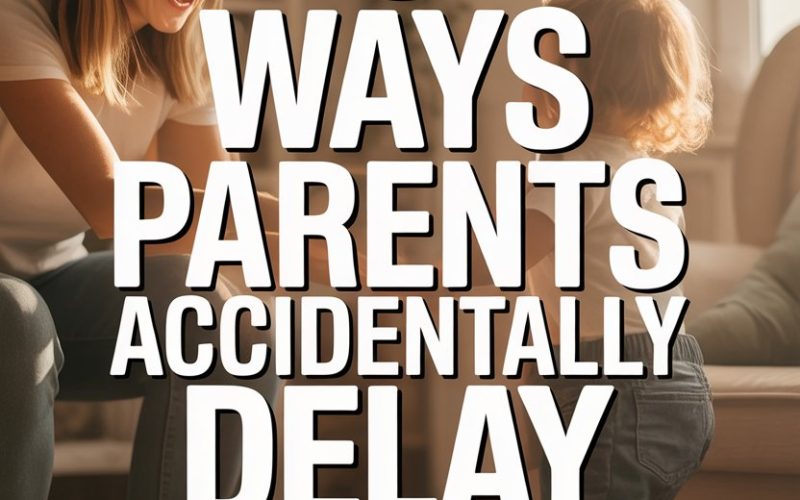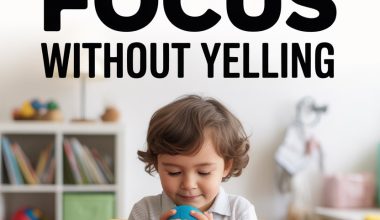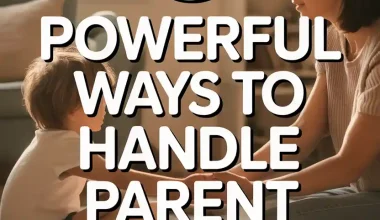Tiny humans. Gorgeous, gurgling, babbling little bundles who, according to every grandparent and well-meaning stranger in the supermarket, should be “talking up a storm” just after they master blowing raspberries.
But what if your tot seems a bit quieter than the neighbor’s? Or your mum-friends’ group chat is full of adorable mispronunciations, and you’re still waiting for something more than a gleeful shriek?
It’s easy to assume language “just happens.” Yet, some everyday habits—most perfectly innocent—can secretly slow things down.
Don’t feel guilty. Loads of loving, attentive parents do these things, mostly trying to help.
Here’s how to spot three surprisingly common culprits, and what you can do differently—tonight.
1. Too Much Screen Time, Not Enough Human Chat
The tablet. The phone. The TV. Lifesavers on rainy afternoons and during those “how is it only 9am?” mornings.
The trouble is, the more a little one zones out in front of a screen, the less back-and-forth chatter they get with real people.
Research keeps piling up showing a clear link between screen time and delayed language development. One study of nearly 900 toddlers found that more screen time at age two meant fewer words at age three.
We’re talking about all screens—games, cartoons, even those “educational” apps that promise to turn your child into a baby Shakespeare.
Here’s the catch: It’s not about swearing off every screen forever. Most parents need a break now and again, and nobody expects you to narrate your grocery run like an audiobook.
The trick is to notice when screen time replaces real conversation. When little ones watch, they’re passive.
They can’t ask questions, point, giggle at your funny faces, or hear the way your voice goes up when you say “Uh oh!” after they launch peas off the highchair.
What works better? Try a swap: Instead of “one more episode,” share a silly song, read a picture book, or just talk through what you’re both doing (“You’re stacking blocks! Can you put the blue one on top?”).
Even simple daily routines—changing nappies, washing hands, cooking dinner—are gold mines for language, as long as someone’s chatting, narrating, and waiting for your child to “talk back” in their own way.
And if you’re desperate for five minutes to make a phone call? (Who isn’t?) Pop on a show, but make it a shared experience when you can. Sit together. Point and name things on the screen.
Ask questions, even if your child isn’t answering yet. Your voice is still the best “learning app” going.
2. Speaking for Your Child (Because It’s Faster, Tidier, or Just Less Embarrassing)
This one’s sneaky because it usually comes from love—or, let’s be honest, sheer exhaustion. You know what your child wants (“juice!”), but they’re pointing and whining or staring you down with those imploring baby blues.
Maybe you’re in a rush. Maybe you don’t feel like playing the “guess what this grunt means” game for the hundredth time.
Before you know it, you’re fetching the cup, opening the snack, answering for them at playgroup, or even translating their every squeak to anyone who’ll listen. No judgment.
Every parent has done it, especially in public, where the pressure to prove your child’s brilliance can make you feel like their personal PR rep.
But here’s what speech therapists, like those at the American Speech-Language-Hearing Association will tell you: When you anticipate every need, you rob your child of the chance to practice communicating.
Speech is a skill that improves with practice, just like stacking blocks or mastering an epic toddler tantrum.
Try this instead: Wait. Pause.
Look them in the eye, and offer a word or gesture to copy. If they grunt and point at the fridge, say the word (“milk?”) and give them a second to try it out.
Any attempt counts! Celebrate the effort, not just perfect pronunciation. Even attempts like “muh” for “milk” are worth a party (bonus points if you add your best happy dance).
And yes, you’ll occasionally be that parent in the supermarket, encouraging your two-year-old to say “banana” while a queue forms behind you. Take a deep breath.
The world will keep turning if you’re late for yoga or the bananas are slightly bruised.
3. Not Enough Turns in the Conversation (AKA The Monologue Trap)
If you’ve ever found yourself narrating your every move to a baby (“And now we are putting on your socks. Look at these socks. Aren’t these socks lovely?”) and wondered if you’re slowly losing your mind, you’re not alone.
Narration is great for language—little ones need to hear lots of words, after all. The hitch? Sometimes we forget to leave space for them to join in.
This is what experts call “serve and return” conversation. Speech isn’t just about hearing words—it’s about learning the rhythm of taking turns.
Imagine playing tennis with someone who always keeps the ball. Not much fun, and you’ll never get better at returning a serve.
Babies start learning this back-and-forth long before they can say a single word. When you make a silly face and wait, they’ll often coo or smile back.
As they grow, they’ll experiment with gestures (“up!”), sounds, then words.
But if we never pause—if we narrate, lecture, or rattle off instructions without a break—they miss the chance to practice their side of the conversation.
Try this: After you say something, count to five in your head. Yes, it’ll feel like an eternity, especially when you’re waiting for a toddler to respond to “What do you want for breakfast?”
But those extra seconds are magic. Suddenly, they have space to process, think, and try a sound or word.
Even when your child isn’t talking yet, they can still “answer” with a look, smile, babble, or gesture. Respond to those cues as if they’re words (“You pointed at the dog! Yes, that’s a dog!”).
The more your child feels that their turn matters, the more likely they are to keep trying—and eventually, those babbles become words, then sentences, then, well, endless monologues about trucks, princesses, or whatever today’s obsession happens to be.
You’re the Secret Ingredient
Every child moves at their own pace, and no amount of talking, singing, or narrating will make your little one recite Shakespeare before they’re ready.
Still, small changes in your daily routine can make a massive difference—and you won’t need a Pinterest-worthy schedule or a jungle gym in your lounge.
It’s not about perfection. It’s about connection.
Put down the phone for a minute. Leave the occasional question unanswered and see what your child tries next. Wait for their “turn” in the chat, even if it’s just a giggle or a goofy grin.
The best thing you can do for language is what you do best: be there, listen, and respond.
And don’t worry—before you know it, you’ll be wishing for a little peace and quiet.
Careful what you wish for.




